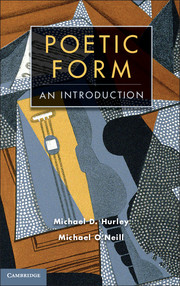Chapter 5 - Epic
Published online by Cambridge University Press: 05 November 2012
Summary
Ma qui la morta poesi resurga (But let dead poetry rise again)
Dante (Purgatorio I)Overview
Epic poetry has always laid claim to being the most magisterial and inclusive of poetic genres. It combines the primitive and the sophisticated, spanning both oral and written modes of composition. If it seems most at home in cultures that value the heroic (ancient Greece, classical Rome, Renaissance England), its persistence as a form argues for an abiding cultural concern with heroism, however much it consorts with ironic dust, to adapt a line from Donald Davie.
Epic’s claim to inclusiveness derives initially from the weight and scope of epic subject matter, traditionally communicated through a narrative that starts in medias res (literally, ‘in the middle of things’). The Iliad opens in the final year of the Greek siege of Troy, the Aeneid with a storm at sea threatening the lives of Aeneas and his men, fleeing from Troy. The convention of starting in medias res tells us much about epic, especially that it involves a turbulent sense of struggle and outcome, of causes and consequences, of murky doubt and attempted prophetic clarity. Epic form provides a means through which massive countervailing forces can find expression. Central to its generic identity is the sense of task. The leading figures must fulfil their destiny; the poet must write his or her poem.
- Type
- Chapter
- Information
- Poetic Form , pp. 120 - 144Publisher: Cambridge University PressPrint publication year: 2012

